
The Mymensingh Forest Division, a habitat of wild Asian elephants, is located in the north of Bangladesh and abuts to the Indian State Meghalaya. About 60-100 trans-border migratory elephants, which are considered to be critically endangered in Bangladesh, live in this region. Due to ongoing deforestation, the enlargement of settlements and scarcity of food the conflict between humans and elephants is increasing. Elephants visit the home of villagers to look for food at night. In doing so they damage crops and attack villagers, who often try to protect their crops. In 2022 seven elephants and ten villagers have been killed in this ongoing conflict. (2022)
Some villagers use flashlights, torches, whistles, firecrackers and electric wires to protect their arable land from elephants. The flashlights are used to glare the elephants.
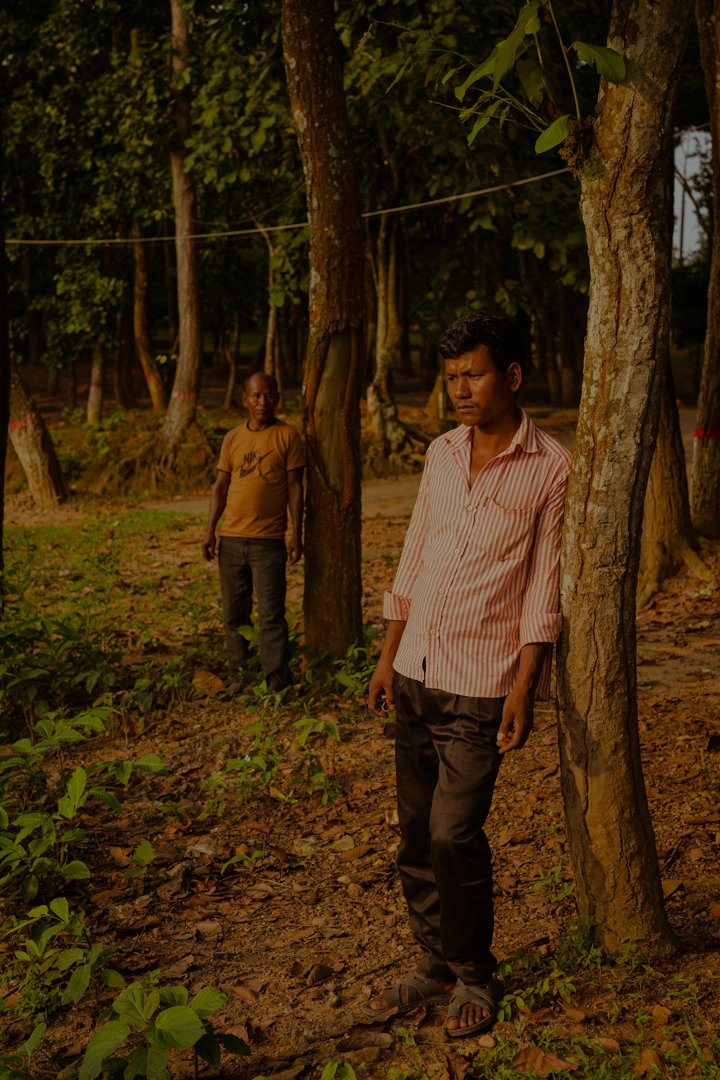
Pilson Rema, farmer and Imran Koch, driver are part of the Elephant Response Team of Gajni. They are trained to stop an elephant raid without causing any injury to the animals. Afterwards other Elephant Response Teams from nearby villages are informed about the incident.

The Mymensigh Forest Division is home to two different cultures. Muslim communites, who mostly inhabit distal forest areas and ethnic communities - like Garo, Koch and Hajong in the forest/jungle areas.
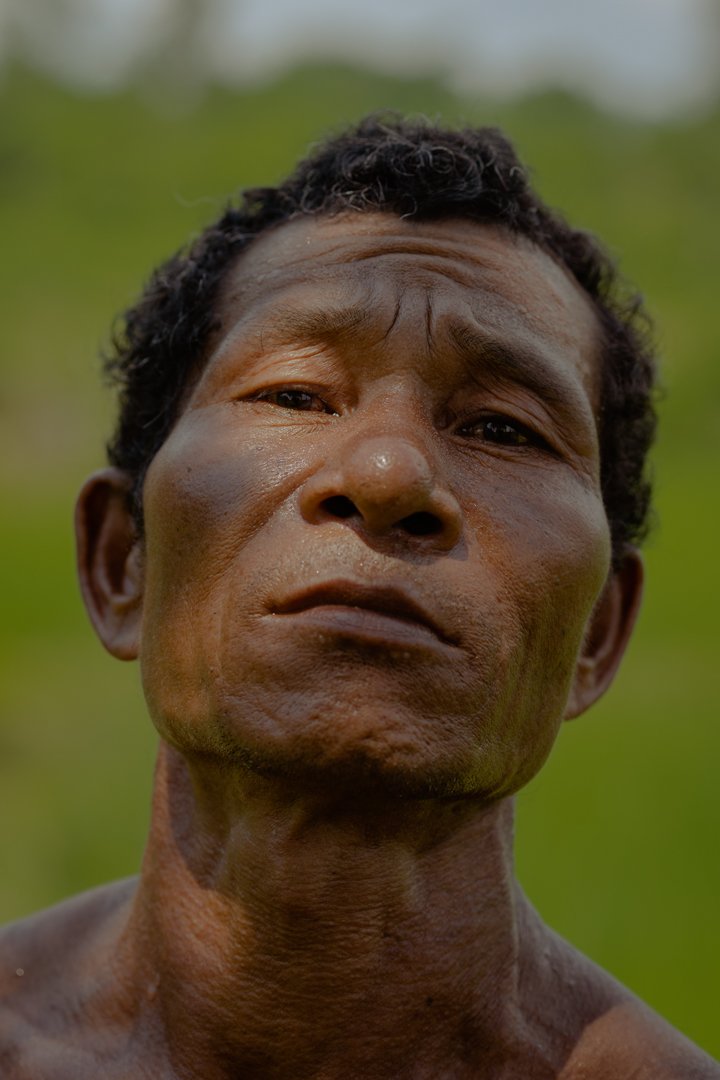
Joising Dophu, farmer, suffered a serious injury caused by an elephant. While defending his crops, the elephants chased him, he fell and one stamped on his ribs. The other villagers rescued him and brought him to the hospital. “I almost died”, said Dophu after he recalled his injury.
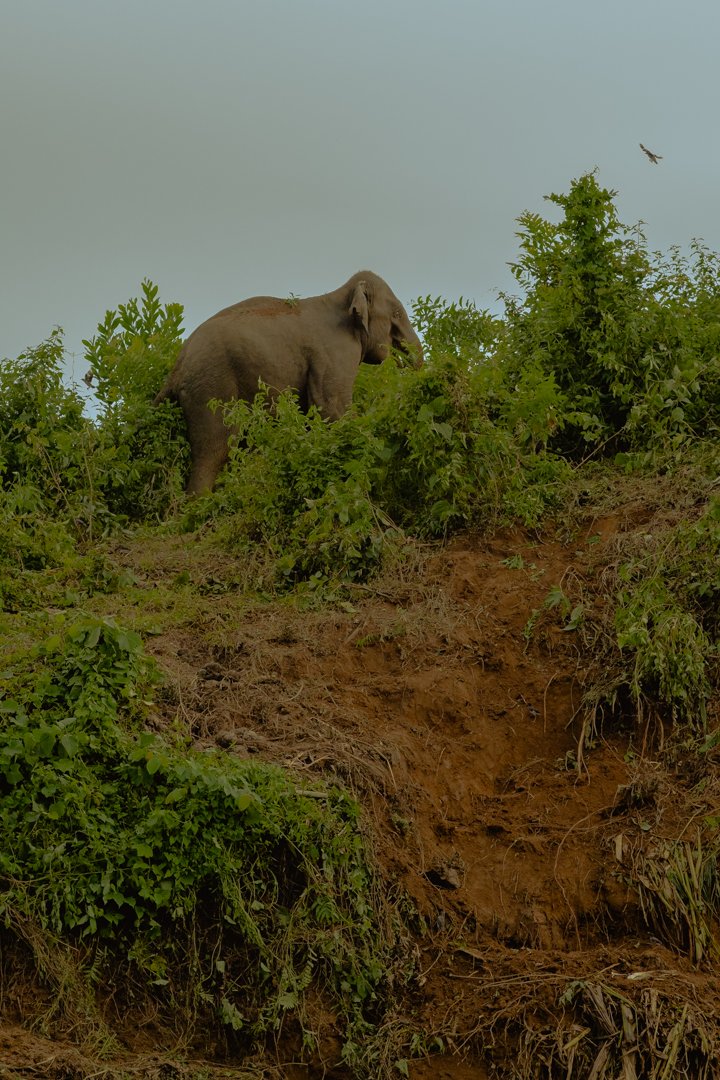
in Bangladesh the Asian elephant is protected by the “Wild Animal Preservation and Security Act” from 2012. If any person kills an elephant he shall be punished with imprisonment from two up to seven years and a fine of 100.000 up to 1.000.000 taka (around 950€ to 9500€).

After hearing the shouting of elephants Pinus Sanngma from the village of Hariakuna went out of his house with a weapon, he usually uses for work. Instead of using it he led a conversation with
the intruders to protect his property. Meanwhile two other elephants destroyed his house. The elephants he talked to, didn’t do anything. After this encounter Pinus might start to believe the story of his grandparents, that elephants understand human language.
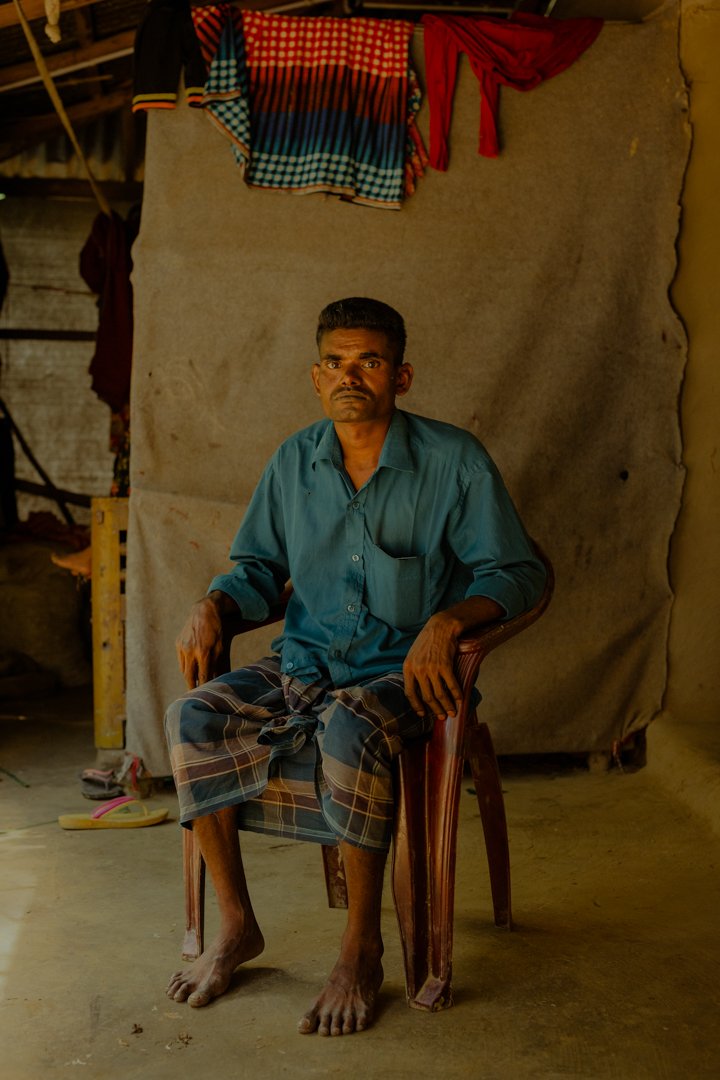
Md. Haider Ali’s, farmer, father Md. Samed Ali died in 2022 after an elephant attack while cutting grass. The elephant stamped on his face and his upper body. The remains were found burried under the soil and didn’t look like human anymore. The family relied on their fathers income and now are struggling to survive. They still wait for the compensation money of the government.
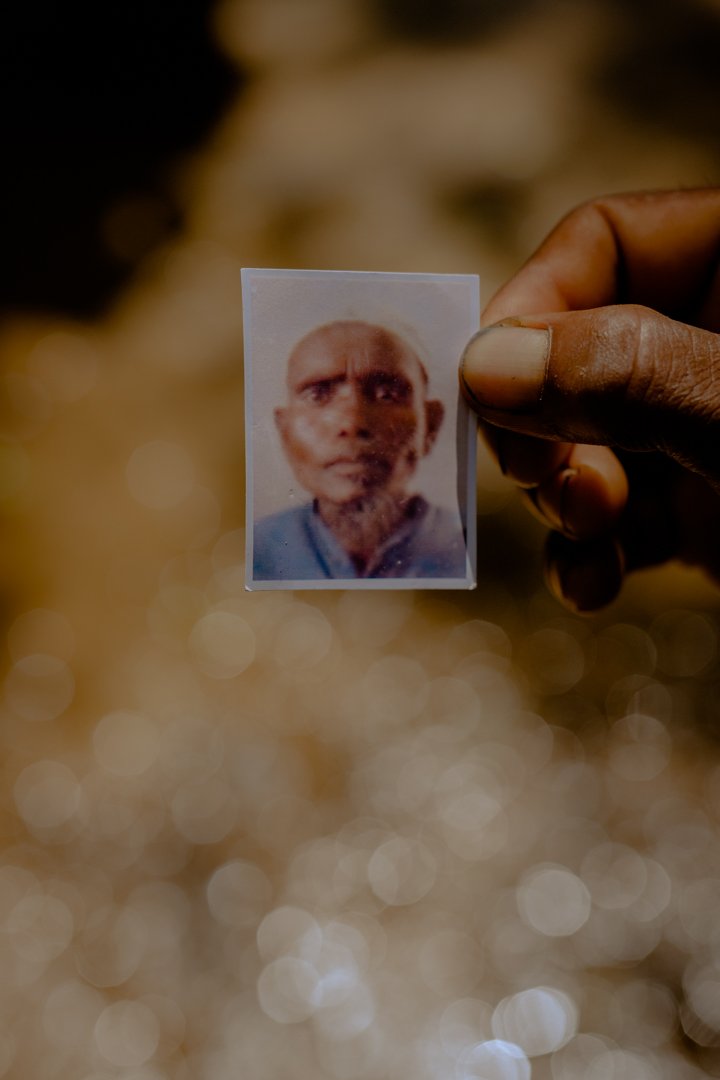
Md. Samed Ali, 65, was killed by an elephant on the 2nd August 2022. If a person gets killed by an elephant the government pays 300.000 taka (around 2820€) to the victims family as compensation. A person, who gets seriously injured receives 100.000 taka. Destroyed crops are compensated with 50.000 taka. If your house gets destroyed by an elephant, the government will build a new house.
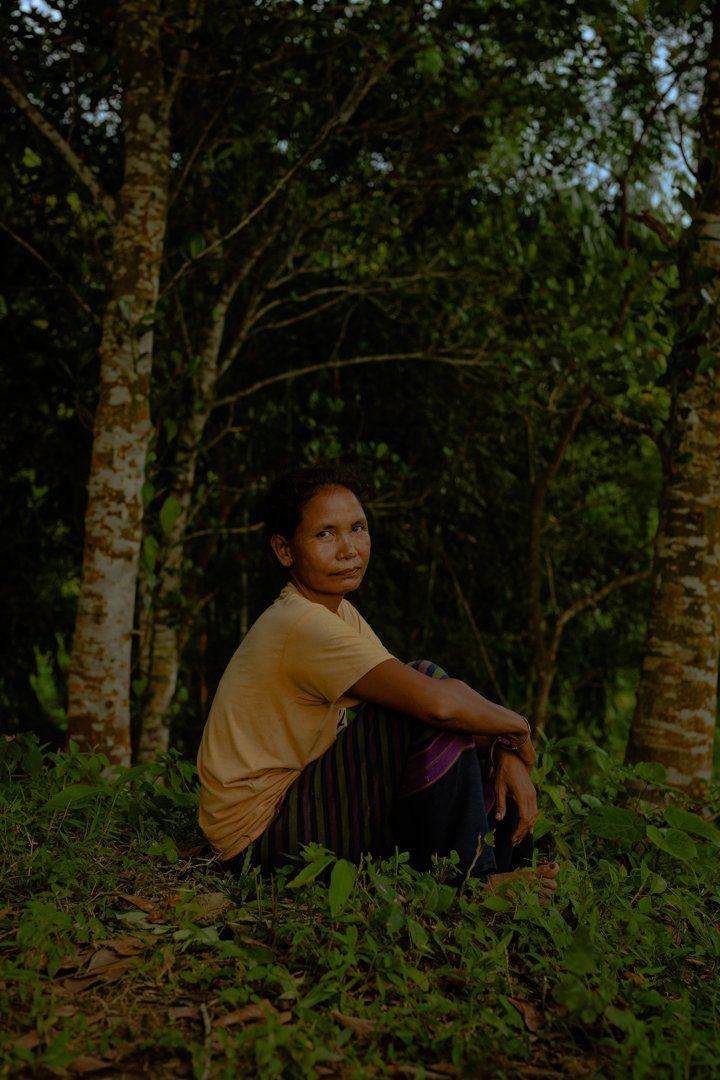
“Elephants listen to our words. When we request them by saying - Please uncle leave this place we are very poor don’t harm anything, we are scared of you, please leave - then they return to the jungle”, said Scolastika Raksam. According to her, many families have left the village of Songnathpara, because of the common elephant encounters, which made farming almost impossible for villagers.

Myths imply that elephants have intellectual power. People shall not use or think of bad language and slang words in front of them, to avoid making them angry.
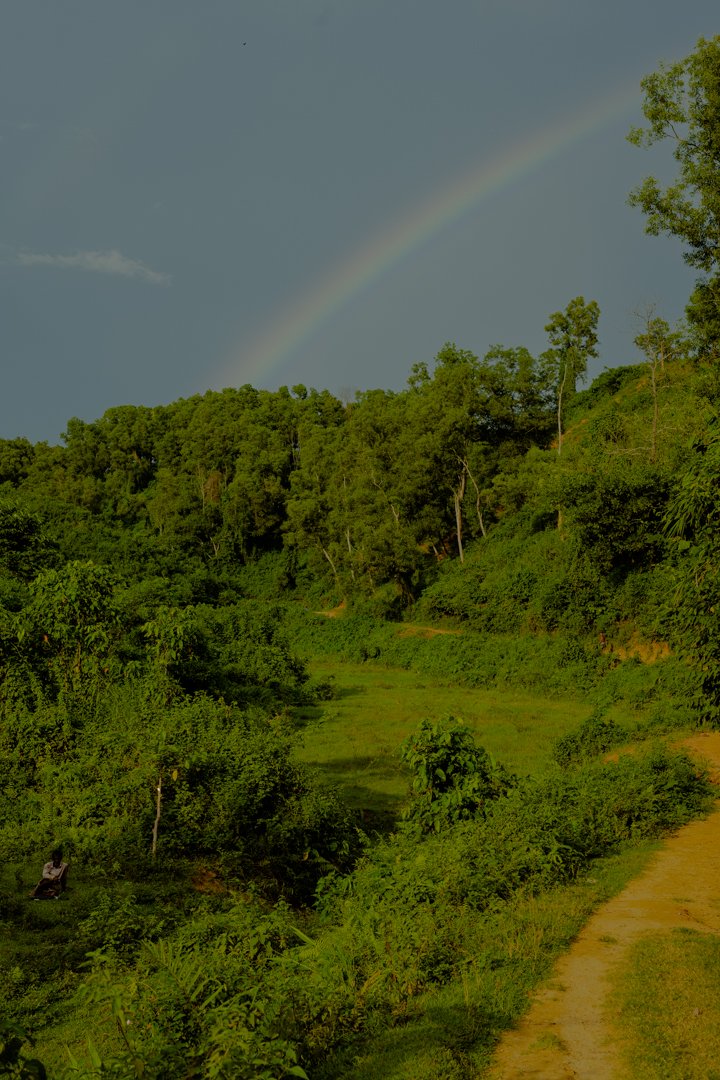
Habitat decline of the Asian elephant heats up the conflict between humans and them. Furthermore it leads to a fragmentation of their routes and corridors, which they have been using for generations for their daily movement. Therefore the protection of elephant habitats is mandatory to avoid human elephant conflict.











The Mymensingh Forest Division, a habitat of wild Asian elephants, is located in the north of Bangladesh and abuts to the Indian State Meghalaya. About 60-100 trans-border migratory elephants, which are considered to be critically endangered in Bangladesh, live in this region. Due to ongoing deforestation, the enlargement of settlements and scarcity of food the conflict between humans and elephants is increasing. Elephants visit the home of villagers to look for food at night. In doing so they damage crops and attack villagers, who often try to protect their crops. In 2022 seven elephants and ten villagers have been killed in this ongoing conflict. (2022)
Some villagers use flashlights, torches, whistles, firecrackers and electric wires to protect their arable land from elephants. The flashlights are used to glare the elephants.
Pilson Rema, farmer and Imran Koch, driver are part of the Elephant Response Team of Gajni. They are trained to stop an elephant raid without causing any injury to the animals. Afterwards other Elephant Response Teams from nearby villages are informed about the incident.
The Mymensigh Forest Division is home to two different cultures. Muslim communites, who mostly inhabit distal forest areas and ethnic communities - like Garo, Koch and Hajong in the forest/jungle areas.
Joising Dophu, farmer, suffered a serious injury caused by an elephant. While defending his crops, the elephants chased him, he fell and one stamped on his ribs. The other villagers rescued him and brought him to the hospital. “I almost died”, said Dophu after he recalled his injury.
in Bangladesh the Asian elephant is protected by the “Wild Animal Preservation and Security Act” from 2012. If any person kills an elephant he shall be punished with imprisonment from two up to seven years and a fine of 100.000 up to 1.000.000 taka (around 950€ to 9500€).
After hearing the shouting of elephants Pinus Sanngma from the village of Hariakuna went out of his house with a weapon, he usually uses for work. Instead of using it he led a conversation with
the intruders to protect his property. Meanwhile two other elephants destroyed his house. The elephants he talked to, didn’t do anything. After this encounter Pinus might start to believe the story of his grandparents, that elephants understand human language.
Md. Haider Ali’s, farmer, father Md. Samed Ali died in 2022 after an elephant attack while cutting grass. The elephant stamped on his face and his upper body. The remains were found burried under the soil and didn’t look like human anymore. The family relied on their fathers income and now are struggling to survive. They still wait for the compensation money of the government.
Md. Samed Ali, 65, was killed by an elephant on the 2nd August 2022. If a person gets killed by an elephant the government pays 300.000 taka (around 2820€) to the victims family as compensation. A person, who gets seriously injured receives 100.000 taka. Destroyed crops are compensated with 50.000 taka. If your house gets destroyed by an elephant, the government will build a new house.
“Elephants listen to our words. When we request them by saying - Please uncle leave this place we are very poor don’t harm anything, we are scared of you, please leave - then they return to the jungle”, said Scolastika Raksam. According to her, many families have left the village of Songnathpara, because of the common elephant encounters, which made farming almost impossible for villagers.
Myths imply that elephants have intellectual power. People shall not use or think of bad language and slang words in front of them, to avoid making them angry.
Habitat decline of the Asian elephant heats up the conflict between humans and them. Furthermore it leads to a fragmentation of their routes and corridors, which they have been using for generations for their daily movement. Therefore the protection of elephant habitats is mandatory to avoid human elephant conflict.